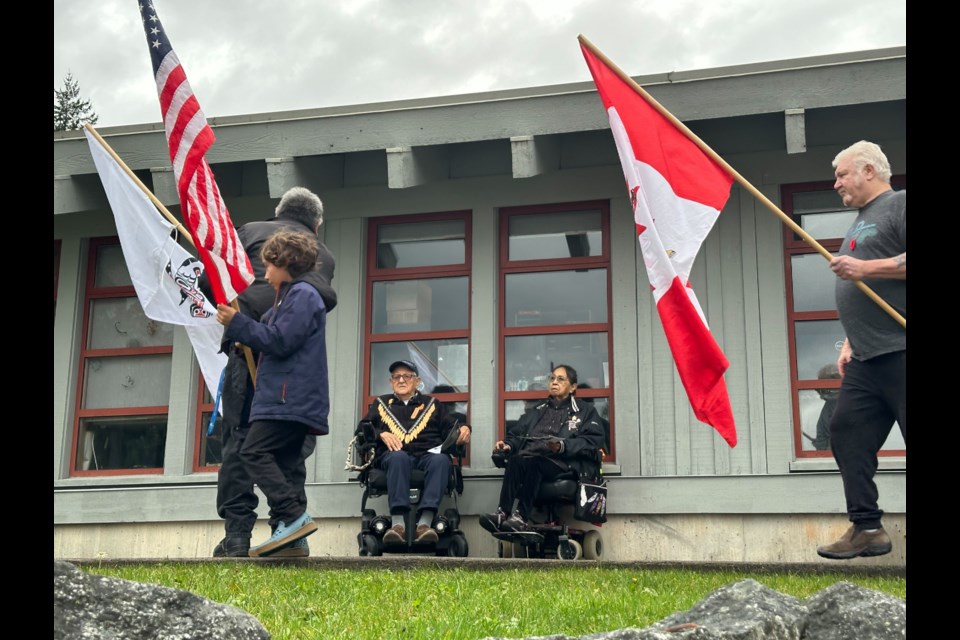On Monday, the community gathered at Totem Hall in 麻豆社国产for a Remembrance Day ceremony. The ceremony began with solemn moments of silence at 11 a.m., followed by a traditional prayer.
The event was also attended by students from 麻豆社国产Nature Learners and around 20 others.
Elders and leaders from S岣祑x瘫wú7mesh Úxwumixw (麻豆社国产Nation) shared their stories of wartime sacrifice and resilience.
Reflections on wartime life
Following the reading of names of S岣祑x瘫wú7mesh people who lost their lives in the wars, Kiyowil Bob Baker, a S岣祑x瘫wú7mesh Nation Elder, shared memories from his time in residential school and the Second World War.
Baker recalled how, as a child, he was introduced to the harsh realities of war.
“When I was in school, we trained as kids,” he said. “They told us the Japanese might come straight down, and we had to be ready. That was my first exposure to the reality of war.”
Even after the war ended, Baker said the sense of vigilance never left.
“We were still learning, still preparing. And now, years later, we’re fighting different battles,” he said. “If something goes wrong, even in today’s politics, conflict could arise again.”
Unity amid diversity
Event organizer Donna Billy, whose ancestral name is Sisolia, reflected on the unity among soldiers during wartime.
“In the army, there were no divisions—no ‘us and them,’ no 麻豆社国产Nation, white, Black, or anything else,” Billy said. “They were all there for one reason: to fight for our freedom.”
She emphasized the importance of passing down these stories to younger generations.
“Never forget the memories,” Billy said. “One day, it’ll be one of you standing up here, speaking to the next generation.”
The unbreakable code of Indigenous languages
Local Paul Sentesy spoke about the critical role Indigenous languages played during the war.
“During the war, communication was everything,” Sentesy said. “Our languages, unlike Germanic or Latin-based languages, were impossible for the enemy to decode.”
This unique method of secure communication, he said, highlighted the value of Indigenous heritage and traditions in unexpected ways.
According to , during Second World War, the Canadian military enlisted Cree speakers to serve as code talkers, utilizing their Indigenous language to secure communications.
A global perspective on sacrifice
Offering an international lens, local Hasrat Gill shared stories of soldiers from Punjab, India, who fought under British colonial rule during the world wars.
“Thousands of Sikhs, Hindus, and Muslims from Punjab fought in those wars,” Gill said. “Many never returned home, and their sacrifices were often overlooked in history.”
According to , during the World Wars, the Punjab region of British India made significant contributions to the Allied forces. In the First World War approximately 320,000 soldiers from Punjab served, with many not returning home.
Micah Loveless, 8, recited "In Flanders Fields.’"
The ceremony concluded with a prayer song and a light luncheon, as attendees reflected on the stories shared.
Bhagyashree Chatterjee is The 麻豆社国产’s Indigenous affairs reporter. This reporting beat is made possible by the .




